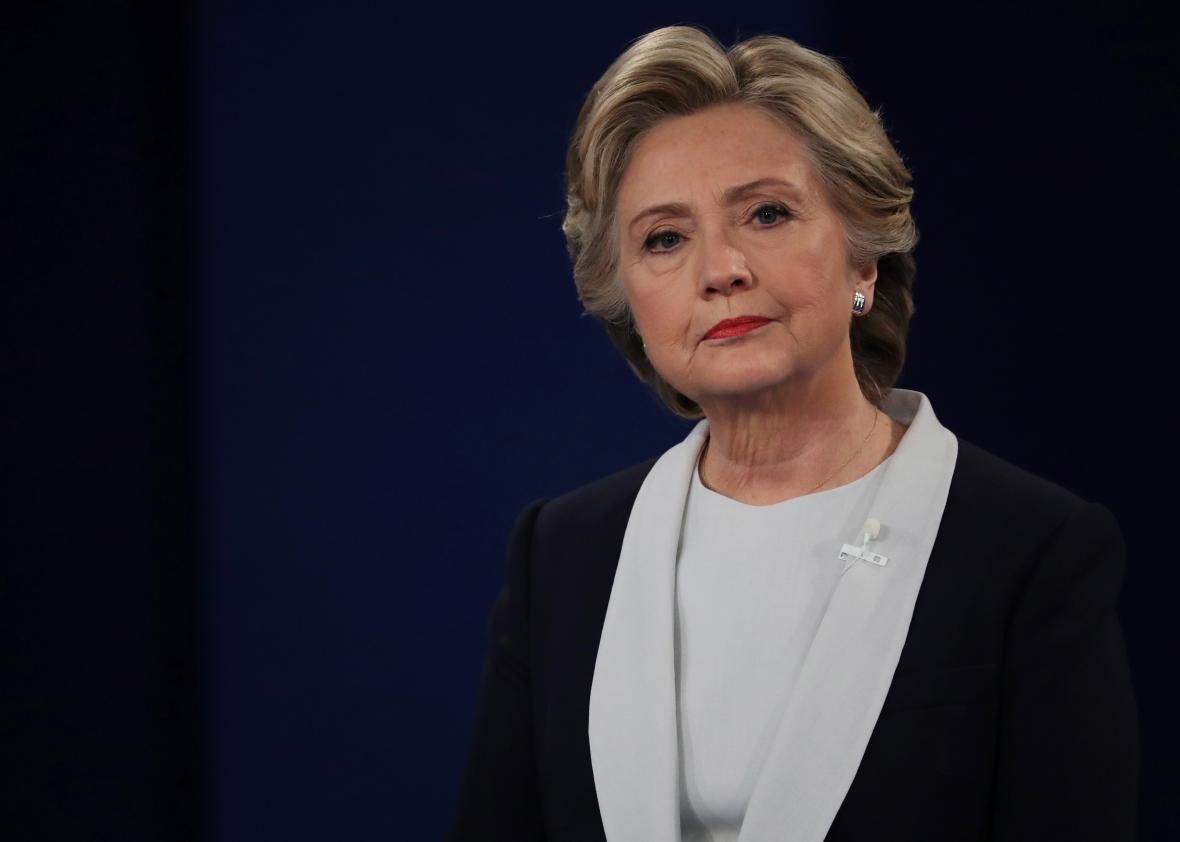The FBI’s latest document dump concerning its since-completed investigation into Hillary Clinton’s email server has generated some rough headlines for the Democratic nominee (“Hillary Clinton’s email problems just came roaring back,” declared the Washington Post) and the usual hyperbole from her Republican opponent (“This is worse than Watergate,” blared Donald Trump). But just how bad is it?
A closer look at what we currently know suggests that we don’t know all that much—but what little we do know has little to do with Clinton herself. The new files—roughly 100 pages of summaries of interviews the FBI conducted during its probe into whether Clinton and her aides mishandled sensitive government information that flowed through her private email server—suggest there were strong disagreements between the FBI and the State Department last year over whether some of Clinton’s emails should be retroactively marked classified as the agencies prepared those messages for public release.
Inter-agency drama over such matters is relatively commonplace, but there was one particular instance that appeared more than a little unusual. According to the investigators’ notes, someone in the FBI (who’s name was redacted by the bureau) claimed that in 2015 a senior State Department official discussed a potential bargain whereby the FBI would help get one particular 2012 Benghazi-related email marked unclassified and would get a favor in return from the department for its trouble (emphasis mine):
[REDACTED] indicated he had been contacted by PATRICK [F.] KENNEDY, Undersecretary of State, who had asked for his assistance in altering the email’s classification in exchange for a “quid pro quo.” [REDACTED] advised that, in exchange for marking the email unclassified, STATE would reciprocate by allowing the FBI to place more Agents in countries where they are presently forbidden.
Given the swirl of pay-for-play accusations that have long surrounded the Clinton Foundation and the Hillary Clinton–run State Department, there aren’t many three-word phrases that Team Clinton dreads seeing in an official FBI file more than quid pro quo, I would imagine, even if this one concerns something that allegedly happened well after she left the Obama administration. Still, it’s worth taking a half step back. The files released by the FBI on Monday included summaries of interviews, not the transcripts themselves, and the notes aren’t always in the clearest prose. That above passage leaves it very unclear as to who used the words “quid pro quo” to describe what was discussed, as well as who originally broached the issue of agent deployment—the FBI official or Kennedy—and both agencies have since said that it was the now-retired FBI official who first brought the issue up.
For its part, the Obama administration says there is nothing to see here. “The allegation of any kind of quid pro quo is inaccurate and does not align with the facts,” State Department spokesman Mark Toner told reporters. “There was no quid pro quo.” Asked about the topic at a press conference on Tuesday, President Obama likewise suggested the controversy was the result of “overly broad characterizations of interactions between the State Department and the FBI that happen a lot, and happen between agencies.”
As the administration has pointed out: The email in question—sent in November 2012 and concerning possible arrests related to the Benghazi attacks—was ultimately deemed classified by the FBI despite the State Department’s efforts, and a redacted version of it was released in May of last year. Kennedy, then, didn’t get his way in the end and there’s nothing to suggest that State delivered on what would then have been all quo and no quid.
Furthermore, no evidence has emerged that Clinton or her campaign was even aware of Kennedy’s actions in the first place. Critics can point to the fact that he first served in the State Department under Bill Clinton and now serves as undersecretary in the Obama administration. But Kennedy also served in the same role during the last Bush administration under Secretary Condoleezza Rice.
That’s not to say that there’s not some legitimate questions to be asked—just that right now it’s Kennedy, not Clinton, who needs to do the answering. The FBI summaries paint Kennedy as aggressive in his attempts to ensure as few emails on Hillary’s private server as possible were deemed classified. According to the files, at one point Kennedy proposed using a little-known provision in the Freedom of Information Act to label the Benghazi email unclassified but nonetheless still exempt it from federal records laws. As the Associated Press notes, that provision is “intended to protect geological and geophysical information and data, including maps, concerning wells, and is the most rarely used FOIA exemption.” If Kennedy could have convinced the FBI to go along with that plan, it would have helped Clinton save some face while still effectively hiding the email from the American public. Even if Kennedy was working on his own, then, his interests clearly aligned with hers given she was—and, in many ways, still is—attempting to convince voters that she never put sensitive government information at risk.
